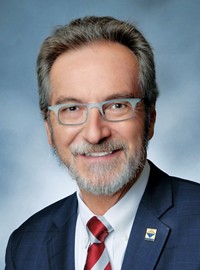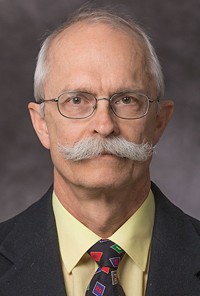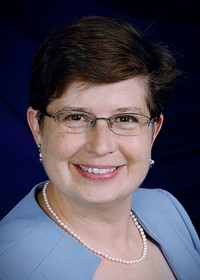Advertisement
Grab your lab coat. Let's get started
Welcome!
Welcome!
Create an account below to get 6 C&EN articles per month, receive newsletters and more - all free.
It seems this is your first time logging in online. Please enter the following information to continue.
As an ACS member you automatically get access to this site. All we need is few more details to create your reading experience.
Not you? Sign in with a different account.
Not you? Sign in with a different account.
ERROR 1
ERROR 1
ERROR 2
ERROR 2
ERROR 2
ERROR 2
ERROR 2
Password and Confirm password must match.
If you have an ACS member number, please enter it here so we can link this account to your membership. (optional)
ERROR 2
ACS values your privacy. By submitting your information, you are gaining access to C&EN and subscribing to our weekly newsletter. We use the information you provide to make your reading experience better, and we will never sell your data to third party members.
Policy
For District V Director: John E. Adams
September 14, 2015
| A version of this story appeared in
Volume 93, Issue 36
University of Missouri Section. University of Missouri, Columbia
Academic record: University of Missouri, Rolla (now Missouri University of Science & Technology), B.S., 1974; University of California, Berkeley, Ph.D., 1979
Honors: ACS Fellow, 2009; professional degree in chemistry, Missouri University of Science & Technology, 2011; Curators’ Teaching Professorship, 2009; Governor’s Award for Excellence in Teaching, 2009; University of Missouri President’s Award for Outstanding Teaching, 2009; E. Ann Nalley Midwest Region Award for Volunteer Service to ACS, 2008; Outstanding Faculty Academic Advisor, Missouri Academic Advising Association, 2005; University of Missouri Excellence in Advising Award, 2005; Division of Student Affairs Excellence in Education Award, 1999; Kemper Fellow for Excellence in Teaching, 1993; AMOCO Foundation Undergraduate Teaching Award, 1987; National Science Foundation Graduate Fellow, 1974–77; Sigma Xi; Phi Lambda Upsilon; Phi Kappa Phi; Phi Eta Sigma; Mortar Board; Golden Key
Professional positions (for past 10 years): University of Missouri, Curators’ Teaching Professor Emeritus, 2015– , Curators’ Teaching Professor, 2009–15, professor, 2003–09, associate chair for undergraduate studies, 1996–2012
Service in ACS national offices: District V, board of directors, director, 2013–15; councilor ex officio, 2013–15; Committee on Public Affairs & Public Relations, 2013–15, chair, 2015; Committee on Audits, 2013–15; Committee on Grants & Awards, 2015; Committee on Professional & Member Relations, 2013–14; Board Oversight Group, Society Program Portfolio Management, 2013–14, Goals, Metrics & Valuation Team, chair, 2013–14; Council Policy Committee, 2011–12, (nonvoting) 2010; Fellows Oversight Committee, chair, 2010–13; Board Committee on Planning, 2010; Committee on Executive Compensation, 2010; Committee on Budget & Finance, 2003–10, committee associate, 2002, chair, 2010, consultant, 2014–15, Society Program Review Subcommittee, 2014–15, chair, 2014; Program Review Advisory Group, 2006–09, chair, 2009; Committee on Constitution & Bylaws, 2002, committee associate, 2003–10; Group Insurance Plans for ACS Members, board of trustees, 2011–16, 1997–2000; Committee on Membership Affairs, 1995–2000, committee associate, 2001, 1994
Service in ACS offices:Division of Physical Chemistry: councilor, 2003–14. University of Missouri Section: councilor, 1993–2002; chair, 1988–89; chair-elect, 1988; secretary-treasurer, 1984–85. Midwest Regional Meeting: general chair, 2003; program chair, 1993; webmaster, 2004– ; historian, 2010–
Member: Member of ACS since 1974. Alpha Chi Sigma, American Physical Society, American Association of Chemistry Teachers. ACS Divisions: Chemical Education, Computers in Chemistry, History of Chemistry, Physical Chemistry
Related activities: Alpha Chi Sigma Educational Foundation, 1998–2018, trustee, 1998– , secretary-treasurer, 2009– ; Wakonse Conference on College Teaching, staff, 1999–2015; Delta Chapter adviser, 1990–2015; Midwest Theoretical Chemistry Conference, coorganizer, 2005, 1994; Alpha Chi Sigma, Grand Master Alchemist (president), 2002–04, Grand Professional Alchemist (vice president), 1998–2002; 223rd and 224th ACS National Meetings, symposia cochair, 2002; Brown University, visiting associate professor, 1989–90; Los Alamos National Laboratory, postdoctoral fellow, 1979–81
Adams’s Statement
Before wandering off into the land of election platitudes, I thank you for permitting me to represent you as District V director for 2013–15. These years have been challenging (a euphemism for “one darned thing after another”). The board has faced open access publishing directives; changing society leadership at Chemical Abstracts Service (CAS) and in Washington, D.C.; an improving economy that nonetheless remains difficult for those just entering the workforce; federal dysfunction (another euphemism—feel free to insert your own pejorative descriptor); and increasing demand for ACS products and services from those residing outside the U.S. I have no doubt, given the diverse interests, employment situations, political affiliations, and temperaments of ACS members, that we have delighted some, antagonized some, and merely confused others. Nevertheless, my colleagues and I have done our best to keep the welfare of you and the other members at the forefront of our deliberations and actions, while recognizing that ACS cannot be all things to all people. As I wrote three years ago, we necessarily must prioritize if we are to maximize our influence and impact. I am not one to trumpet personal accomplishments, but I confess to being proud of my role in developing the framework and implementation mechanisms of a more robust society program valuation process that will permit a consistent, timely, and impact-focused review of society activities.
I remain convinced that there are two critical focus areas where ACS is poised to make a real difference, although my board service has confirmed that neither will respond to quick and easy fixes. The first of these areas is K–12 education. The creation of the American Association of Chemistry Teachers was only a first step; the continuing challenge will be to provide the curricular support and services that teachers actually need and will use. But we also must avoid insularity and support those who may not be teaching formal chemistry courses but who nonetheless make use of chemistry content. For example, I recently learned that new curriculum mandates of the Department of Elementary & Secondary Education in my own state are prompting the University of Missouri’s College of Education to consider slashing the already minimal chemistry content requirements for prospective biology teachers. These newly minted but ill-prepared teachers will need our help if they are to present material relevant to modern, molecularly focused biology. Of course, providing them with Web-based curriculum resources, chemical safety training materials, curated laboratory experiments and demonstrations, and networking opportunities is only a start. Involvement, facilitated by local sections and supported by the society as a whole, of individual members with local school systems (including teachers, administrators, and school boards) and with state policy-makers warrants much greater emphasis. At the federal level, our policy advocacy team pushes as hard as it can in promoting quality science education, but we all know that precollege education, despite the promulgated information and misinformation concerning Common Core requirements, largely remains under local control. Marshaling the efforts of our more than 158,000 members and focusing those efforts on local transformations of science education will not be easy, but why not undertake a really momentous task? Just think, wouldn’t it be wonderful if, by our efforts, someday all our local, state, and federal legislators will have a strong grounding in the sciences?
This last bit of wishful thinking leads me to my second emphasis, namely policy advocacy on your behalf. Having walked the halls of the House of Representatives and Senate office buildings each of the past three years, I recognize that ACS can be viewed as just one of many special interest groups and that our priorities, even when supported by high-value data, do not automatically trump all others. The current toxic political atmosphere has even made it difficult for issues that previously enjoyed broad bipartisan support to gain any traction whatsoever. However, as frustrating as the present situation is, I also know that we have to keep pounding away in accordance with our federal charter, providing policy-makers in Congress and the Administration with the best scientific information available. As individual members, though, we also have a responsibility to promote intelligent political discourse on scientific issues locally, to work from the bottom up to build a consensus based on solid, peer-reviewed science. Sure, it often will seem as if we are trying to run through quicksand, but no other scientific society has a better chance of making a positive impact.
For additional information, please see http://faculty.missouri.edu/~adamsje.
Candidates will not be notified of comments left on this webpage. To contact this candidate directly, e-mail adamsje@missouri.edu.






Join the conversation
Contact the reporter
Submit a Letter to the Editor for publication
Engage with us on Twitter